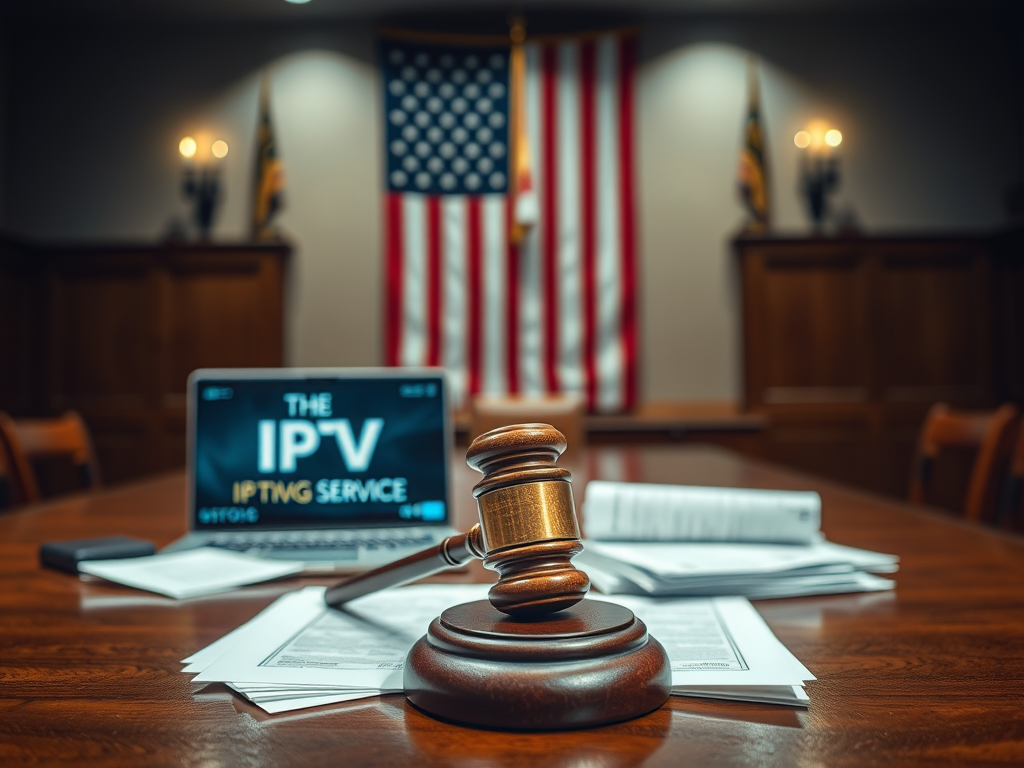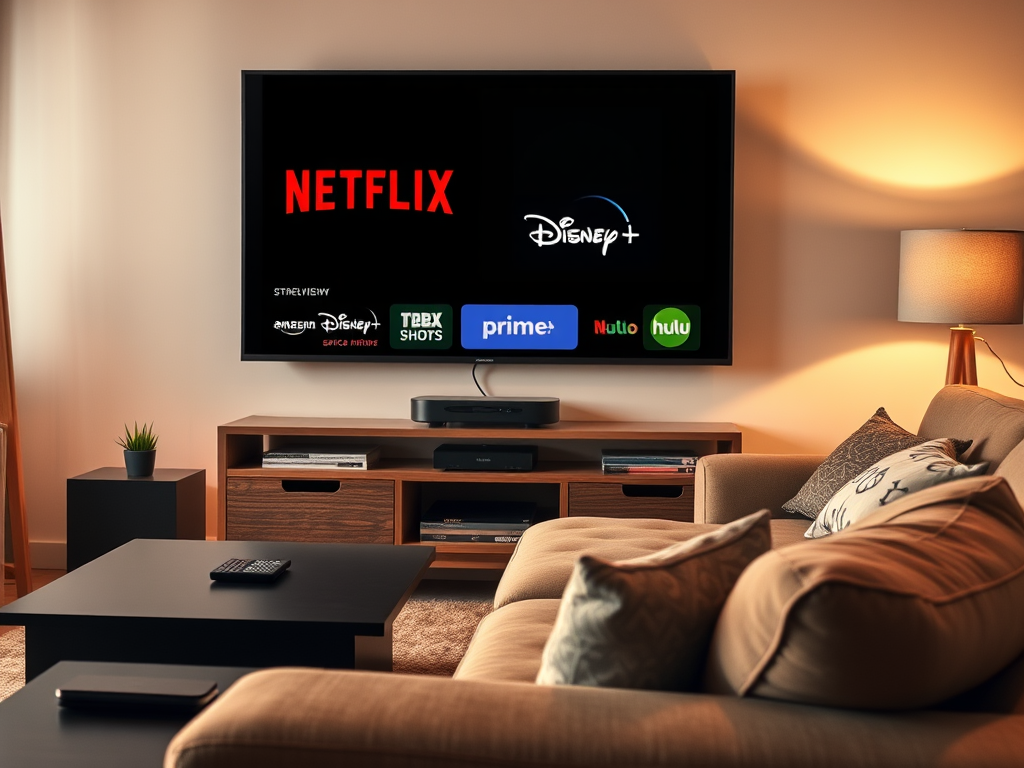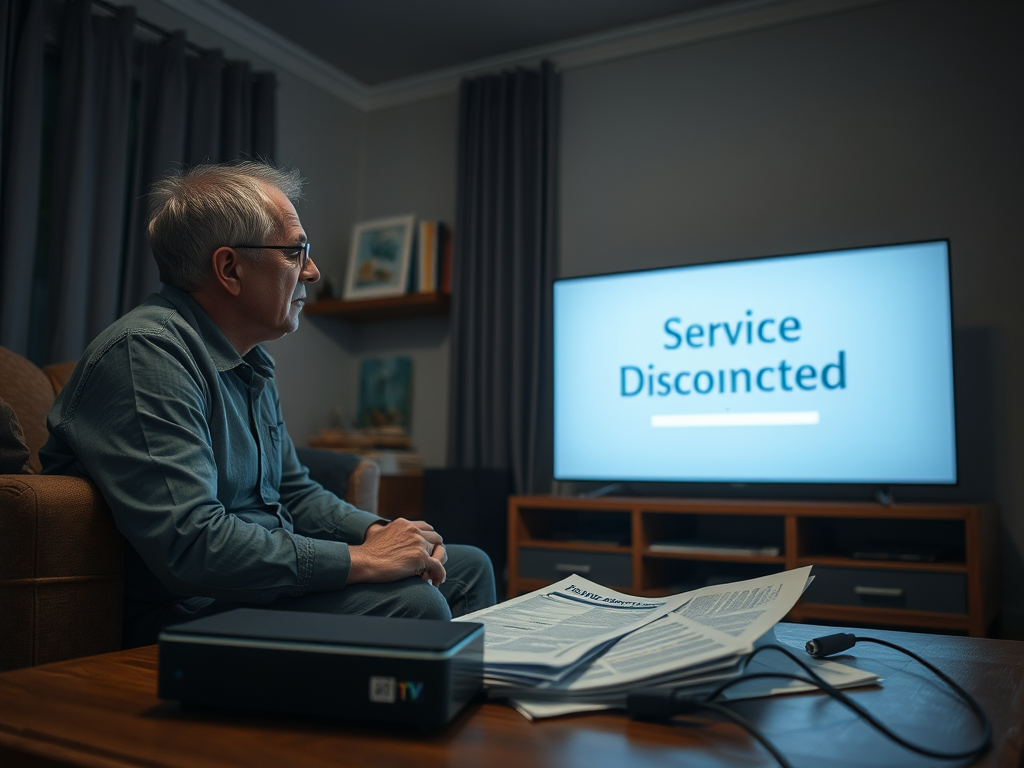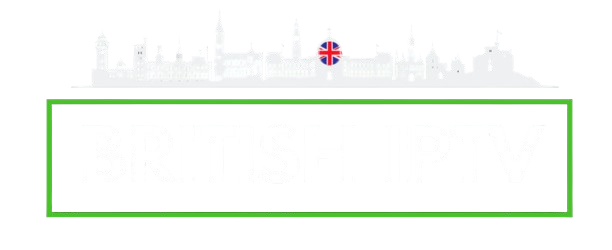Is IPTV legal in the USA?
Streaming revolution or legal minefield? The world of IPTV (Internet Protocol Television) has taken the entertainment industry by storm, offering a tempting array of content at our fingertips. But as you reach for that remote, a nagging question lingers: Is IPTV legal in the USA?
The answer isn’t as straightforward as you might think. With a landscape riddled with gray areas and conflicting information, many viewers find themselves unknowingly treading dangerous waters. The consequences of making the wrong choice could be severe, ranging from hefty fines to legal trouble. But fear not! In this blog post, we’ll dive deep into the murky waters of IPTV legality in the USA, exploring the current legal status, legitimate options available, and the potential risks of venturing into illegal territory. Get ready to unravel the mystery and make informed decisions about your streaming habits!
Legal status of IPTV in the USA

Federal laws governing IPTV
The legal status of IPTV in the USA is primarily governed by federal laws, with the most relevant being:
- The Copyright Act
- The Digital Millennium Copyright Act (DMCA)
- The Communications Act
These laws aim to protect intellectual property rights and regulate the distribution of content. IPTV providers must comply with these regulations to operate legally.
| Law | Key Provisions |
|---|---|
| Copyright Act | Protects original works and prohibits unauthorized distribution |
| DMCA | Addresses copyright issues in the digital age |
| Communications Act | Regulates broadcasting and telecommunications |
Copyright concerns
Copyright infringement is a major issue in the IPTV landscape. Providers must ensure they have proper licensing agreements with content creators or distributors. Streaming copyrighted content without authorization is illegal and can lead to severe penalties.
Licensing requirements
To operate legally, IPTV providers must obtain:
- Content distribution licenses
- Retransmission consent agreements
- Public performance rights
These licenses ensure that providers have the necessary permissions to broadcast content to their subscribers.
State-specific regulations
While federal laws provide the overarching framework, some states have additional regulations governing IPTV services. These may include:
- Consumer protection laws
- Data privacy regulations
- Local franchise agreements
IPTV providers must navigate both federal and state-specific requirements to maintain legal compliance. As the landscape continues to evolve, staying informed about changes in regulations is crucial for both providers and consumers.
Legal IPTV options in the USA

Licensed IPTV providers
When it comes to legal IPTV options in the USA, licensed IPTV providers are at the forefront. These services have obtained proper licensing and agreements with content creators and broadcasters to distribute their content legally. Here are some key features of licensed IPTV providers:
- Offer a wide range of channels and on-demand content
- Provide reliable and high-quality streaming
- Ensure compliance with copyright laws and regulations
- Often include additional features like DVR functionality
| Provider | Key Features | Price Range |
|---|---|---|
| AT&T TV | 65+ channels, cloud DVR | $69.99 – $139.99/mo |
| Sling TV | Customizable packages | $35 – $50/mo |
| fuboTV | Sports-focused, 100+ channels | $64.99 – $79.99/mo |
Streaming services offering live TV
In addition to traditional IPTV providers, many popular streaming services now offer live TV options. These platforms combine on-demand content with live television, providing a comprehensive entertainment package. Some notable examples include:
- Hulu + Live TV
- YouTube TV
- Philo
These services often come with cloud DVR capabilities and the ability to stream on multiple devices simultaneously, making them attractive alternatives to cable or satellite TV.
Network-specific apps and platforms
Many television networks and content providers have launched their own streaming platforms, offering both live and on-demand content. These apps provide a legal way to access specific network content:
- CBS All Access (now Paramount+)
- NBC’s Peacock
- ESPN+
These network-specific options are particularly appealing for viewers who have favorite channels or shows and don’t require a full cable package. With the rise of cord-cutting, these platforms continue to grow in popularity, offering tailored content to their audiences.
Consequences of using illegal IPTV

Legal ramifications for users
Using illegal IPTV services can have serious consequences for users. While many may think they’re flying under the radar, law enforcement agencies are increasingly cracking down on illegal streaming activities. Here are some potential legal ramifications:
- Fines: Users can face hefty fines, often ranging from $750 to $150,000 per infringement.
- Criminal charges: In severe cases, users might face criminal charges, including copyright infringement.
- Internet service termination: ISPs may terminate services for repeat offenders.
- Legal action from content owners: Users may be sued directly by copyright holders.
| Consequence | Description |
|---|---|
| Fines | $750 – $150,000 per infringement |
| Criminal charges | Possible felony charges for copyright infringement |
| ISP termination | Loss of internet service for repeat offenders |
| Legal action | Direct lawsuits from content owners |
Penalties for IPTV service providers
Illegal IPTV service providers face even harsher consequences. The penalties can be severe, reflecting the scale of their operations and the potential damage to the entertainment industry.
Impact on the entertainment industry
The use of illegal IPTV services has a significant impact on the entertainment industry. It leads to substantial revenue losses for content creators, distributors, and legitimate streaming platforms. This, in turn, can result in:
- Reduced funding for new content production
- Job losses in the entertainment sector
- Higher prices for legal streaming services to compensate for losses
As we delve deeper into the consequences, it’s clear that using illegal IPTV services not only puts users at risk but also has far-reaching effects on the entire entertainment ecosystem.

The legality of IPTV in the USA is a complex issue that depends on the specific service and content being streamed. While there are legitimate IPTV options available, many services operate in a legal gray area or are outright illegal. It’s crucial for consumers to understand the differences and choose reputable, licensed providers to avoid potential legal consequences.
Ultimately, the best approach is to stick with authorized streaming services that have proper licensing agreements in place. By doing so, users can enjoy their favorite content without the risk of fines or legal trouble, while also supporting the creators and distributors who produce the entertainment we love. Remember, when it comes to IPTV, if a deal seems too good to be true, it probably is.
